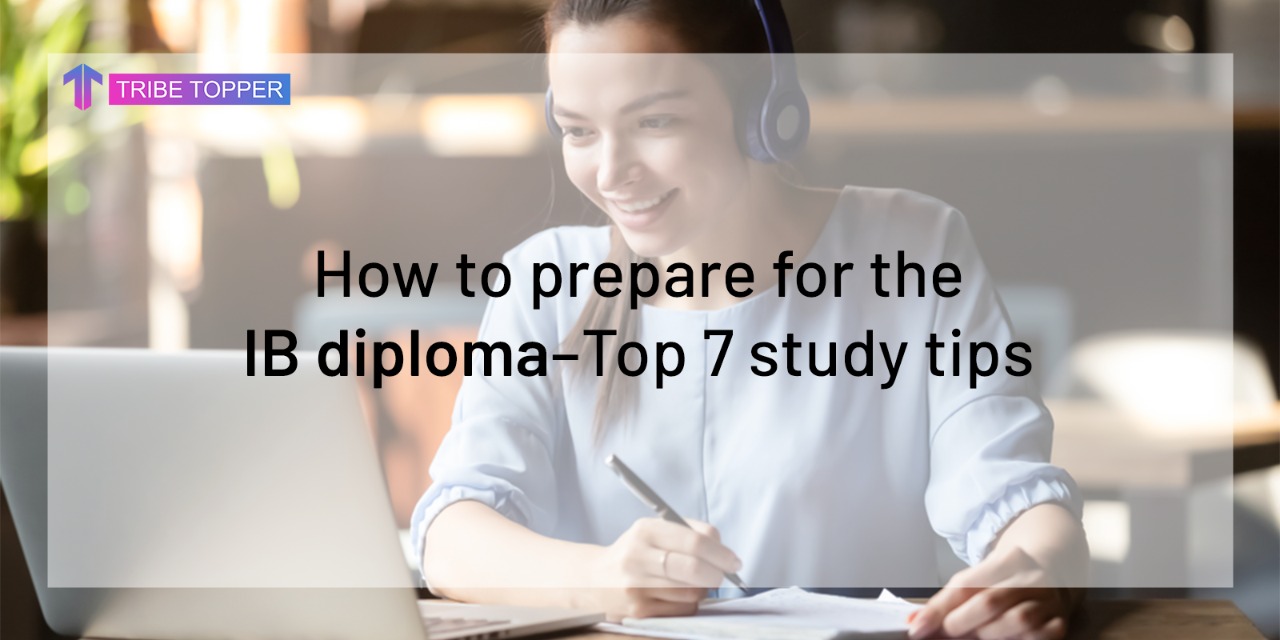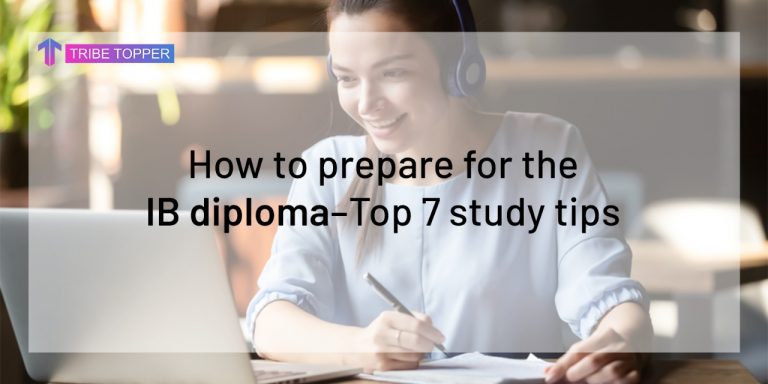How to prepare for the IB Diploma–Top 7 study tips

- Assess your IB subjects
Assuming you have already chosen your subjects, it will take a while to essentially place confidence in how your work will feel next year. If you are beginning with a completely new subject, be ready to grant yourself more time to grips with how it works.
The issue to keep in mind is that everybody faces unique challenges within the IB, and everybody has different strengths.
Significantly, no IB student finds everything straightforward. Changing to be attentive to what to expect can make next year’s transition more manageable. To do this, attempt to predict:
- Your hardest subject.
- Your favourite subject.
- The subject you’ll pay the only time on.
- Get to understand your new subjects
If you’re beginning a replacement subject you’ve not studied before, do some research! Establish a lot concerning what it involves and what varieties of topics you’ll be learning to concern. IB physics is a preparation for university or college. You’ll be able to study physics at uni without too much trouble after doing this course. As with any other IB subject, it has a challenging and varied course of study.
Don’t worry about the specific IB program. However, instead, specialise in what you’re curious about. For example:
Psychology: scan blogs like We’re Sole Human, which contains many articles concerning the eccentricities of attributes.
Business & Management: strive to pay further attention to the business section in your native newspaper.
Global Politics: A fast browsing around Google can find loads of different websites that you will begin your excavation into. Remember that everyone can have their slant and perspective.
Economics: while The Economist touches on business and politics further, it’s a decent place to begin if you wish to learn a lot. Otherwise, you may go straight to the simple theories here.
Philosophy: Try the Oxford University podcast, Philosophy for Beginners.
IB Chemistry: In IB chemistry, understand various topics related to the properties of matter. Begin your study by understanding the structure and bonding of atoms, molecules, and ions. Later on, focus on a course that investigates aqueous solutions, acids and bases, equilibrium, kinetics, and electrochemistry.
- Continue a people
If English isn’t your maternal language, you must do the maximum amount, as you’ll need to polish your skills before beginning the IB.
Find your favourite book in English, watch English or Yankee films while not the subtitles, or challenge your friends to solely check with you in English at bound times of the day!
- Continue the Language B
Like with English, it’s necessary to keep up your language B possibility over the summer break. The key to up your language skills is to place real-time and energy into it.
Unless you’re reaching to pay time travel and speaking in an exceedingly country wherever that language has spoken (which could be good expertise if you’ll get it!) You’re not able to naturally absorb something unless you decide to.
- Explore extra-curricular activities
The IB is not almost about the tutorial things! The entire purpose of CAS is that the IB desires you to do it on the far side of the room.
Use this summer as an opportunity to do our recent activities that might grow to be fun when CAS comes next year. Do the issue you mostly wanted to do but never got round to attempting–you never know, you would become the future greatest circus act or realise it’s your line to find an even-toed, ungulate sanctuary.
- Identify your study strengths
Think about your study habits. Is the square measurement good? Bad? Would you suggest them to a friend? The fact is that most of us don’t select our study or work habits; we have to kind of make them up by chance. That could be dangerous. As a result, it suggests that we do what’s straightforward or mainly, but not what’s best.
Now is the time to figure out what study habits work for you. If you’re missing deadlines because of your permit work till the second, then run out of your time, force yourself to do your prep on the day it is set rather than the day before it’s due.
If you’re continually falling asleep before you end your prep, strive to begin your work earlier. Equally, strive to dynamic the place wherever you are doing your work to seek if operating publicly is healthier than in your sleeping room.
We promise you that if you estimate, however, you’re employed well, you’ll be light-years previous to most different students beginning the IB.
- Apply to get unionised
If you’ll never appear to be unionised, or if you’re perpetually finding your science notes in your sock drawer, now could be the time to show this around.
It is often straightforward to want to be disorganised as the maximum amount of a locality of your identity, whether you prefer swish or crisp spread. However, it’s far, way more serviceable than that.
Don’t change your ways on an exceedingly long day. However, beginning with the wrong things For the rest of the year, get a folder and put all your notes in it, creaseless and in written account order.
Build yourself. Use it every single day for 2 weeks running. We think the organisation is one of the most necessary things to be said in the IB subjects, like IB Physics and IB Chemistry, and those active currently can build it plenty more accessible next year.

